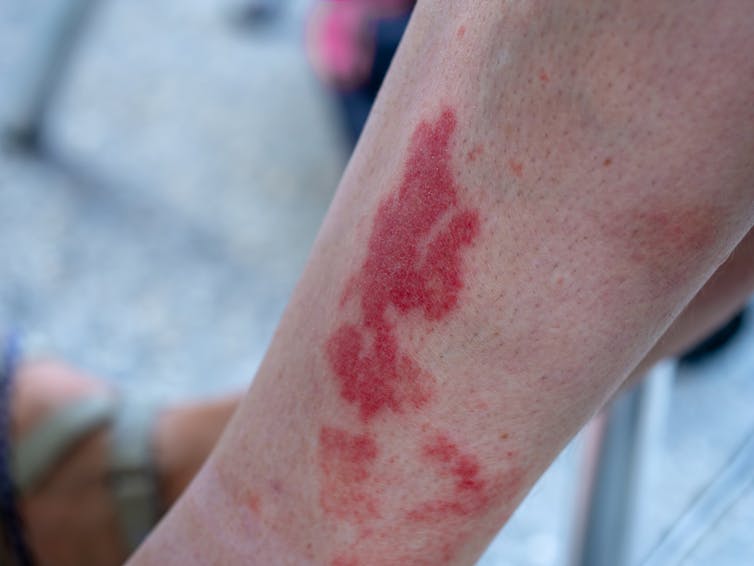Analysis: Many doctors have connected the hedonism of weekend activities with certain cases they've seen in their clinics
By Dan Baumgardt, University of Bristol
Saturday Night Fever hit the silver screen in 1977 and epitomised the culture of the time. Disco music, flared trousers and pure escapism. Saturdays remain the most popular night for going out, although it has very much moved on from the days of John Travolta and bell-bottoms.
But the pleasure-seeking lifestyle has remained and spawned a collection of what might be referred to as the "Saturday night conditions". Let's start with "fever". It's important not to overlook the risk of overheating on a night out. Get caught up in the beat and prolonged, frenetic dancing can raise your temperature to new heights. This can lead to severe dehydration – which if you're not careful, can land you in A&E. So keep sipping that water.
We need your consent to load this rte-player contentWe use rte-player to manage extra content that can set cookies on your device and collect data about your activity. Please review their details and accept them to load the content.Manage Preferences
From RTÉ Radio 1's Brendan O'Connor Show, Hilton Hamilton on her experience of an ecstasy-induced psychosis
The clubbing drug, ecstasy, is well known for its ability to cause overheating too. One study that examined the effect of the drug on clubbers found it raised their body temperatures at least one or two degrees higher than those who hadn't used it. The other associated dangers mean it's never a good idea to use it.
Of course, Saturday night fever is not the only condition that can mess up your weekend. Here are some others.
Saturday night blindness
In 1974, a group of ophthalmologists reported a case of an individual who had collapsed while intoxicated and woke up blind in one eye the next day. The patient had fallen into a stupor, face down, and placed continuous pressure on one of their eyes. In doing so, the artery that supplies the eye was compressed. Shutting off the blood supply had caused irreversible damage to the light-sensitive retina and loss of sight. The condition also led to paralysis of the eye's movements.
The pleasure-seeking lifestyle has spawned a collection of what might be referred to as the "Saturday night conditions"
It seems extraordinary that this position could cause something as extreme as blindness. "Saturday night retinopathy", as it has since been named, is luckily very rare but has been described in other reports. One example detailed three patients who developed the same symptoms through similar circumstances, after remaining prone and unconscious for long periods. In each case, the loss of sight was profound and vision could not be recovered.
Saturday night rashes
While Whigfield might like the way you move, too much dancing on a Saturday night might be to your detriment (pretty baby). Take the cases of two separate adolescents who went to see their doctor, complaining about an odd, itchy rash on their legs. They appeared to look like purple spots, which are otherwise known as purpura. However, the appearance of these purpura only seemed to coincide with weekend trips to the disco – and disappeared after a few days.
The doctors who saw them named the condition "Saturday night purpura". The condition is more commonly referred to as exercise-induced vasculitis: inflammation of blood vessels through exertion, which causes the purple rash. It particularly arises in people who have been on their feet for a long time, especially in warm environments.

Saturday night palsy
Unfortunately for some Saturday night owls, the end destination is a trip to A&E. Frequently, this is as a result of alcohol or substance misuse, which precipitates falls and fisticuffs. Another very good reason to limit the amount of alcohol you consume – to mitigate injuries, and a very disappointing denouement to your night out.
It's not uncommon for doctors to call in inebriated patients from the A&E waiting room to find them sound asleep. If they hang their arm over the back of the chair to stop themselves sliding on to the floor, they may end up with a case of Saturday night palsy. A palsy is another name for paralysis in a muscle, sometimes due to compression and damage to the nerve that makes it work.
This happens when the radial nerve – a large nerve that runs from the shoulder down the arm to the tips of your fingers – becomes compressed, such as when it hangs over the back of a hard chair for too long. The patient may find themselves with a weak arm upon being roused, since the radial nerve controls muscles that extend their wrist, and straightens their arm. They may also experience pins and needles. It can also happen when falling asleep awkwardly on your arm in bed, or wherever else you may find yourself the next morning.
Given the hedonism we've come to associate with the weekend environment, it's unsurprising that many doctors have connected it to certain cases they've seen. But Saturday-night conditions can, of course, occur any day of the week, given the right conditions and misfortune.
The message of the story: enjoy your Saturday nights, but never forget the importance of stayin' alive.
Follow RTÉ Brainstorm on WhatsApp and Instagram for more stories and updates
Dan Baumgardt is a Senior Lecturer in the School of Physiology, Pharmacology and Neuroscience at the University of Bristol. This article was originally published by The Conversation.
The views expressed here are those of the author and do not represent or reflect the views of RTÉ

